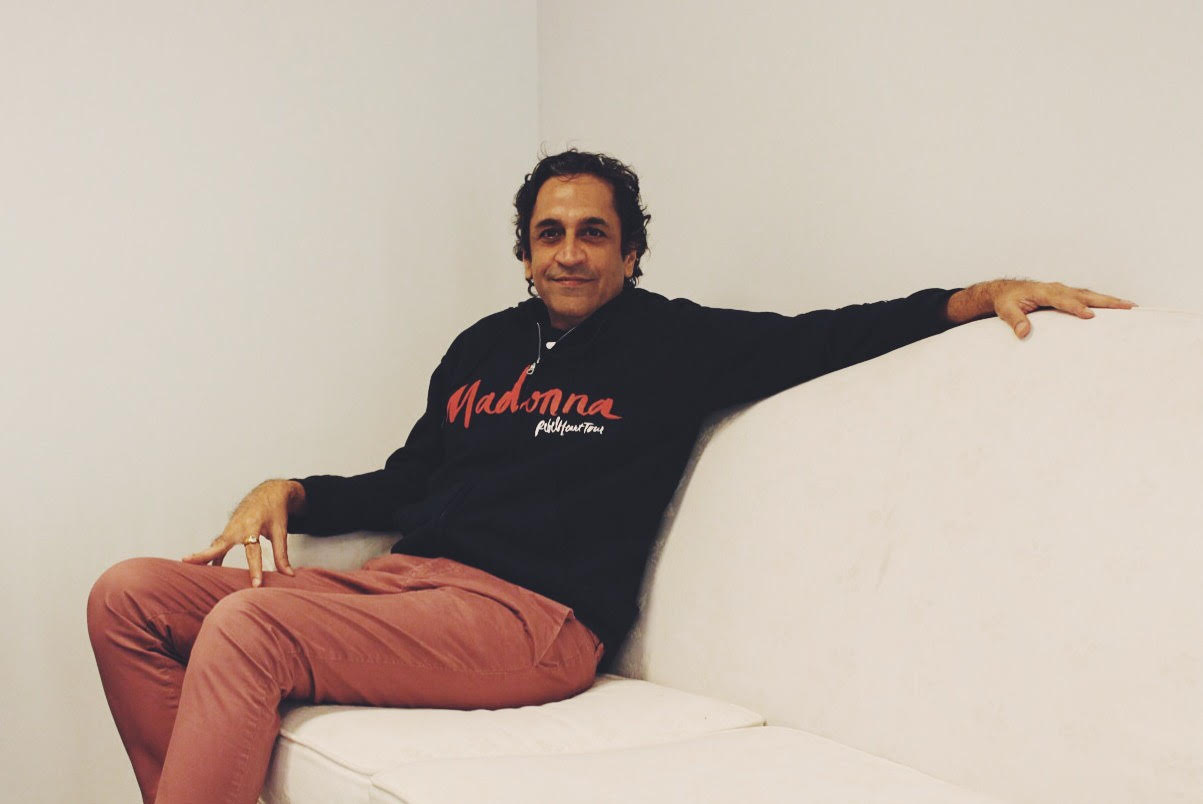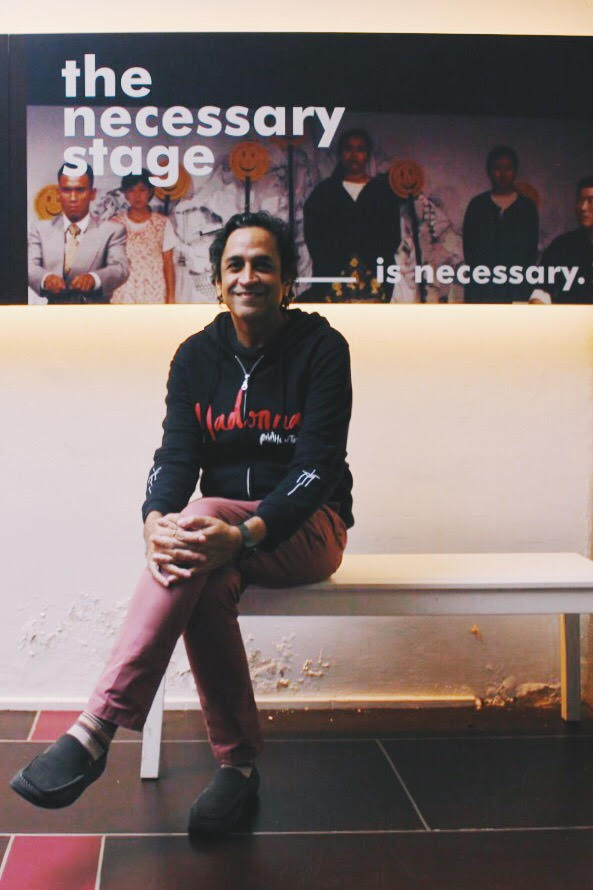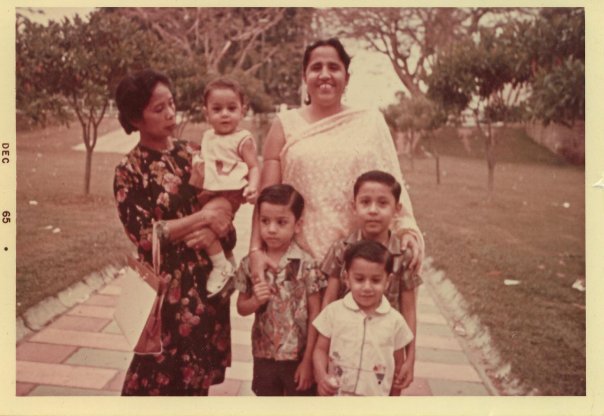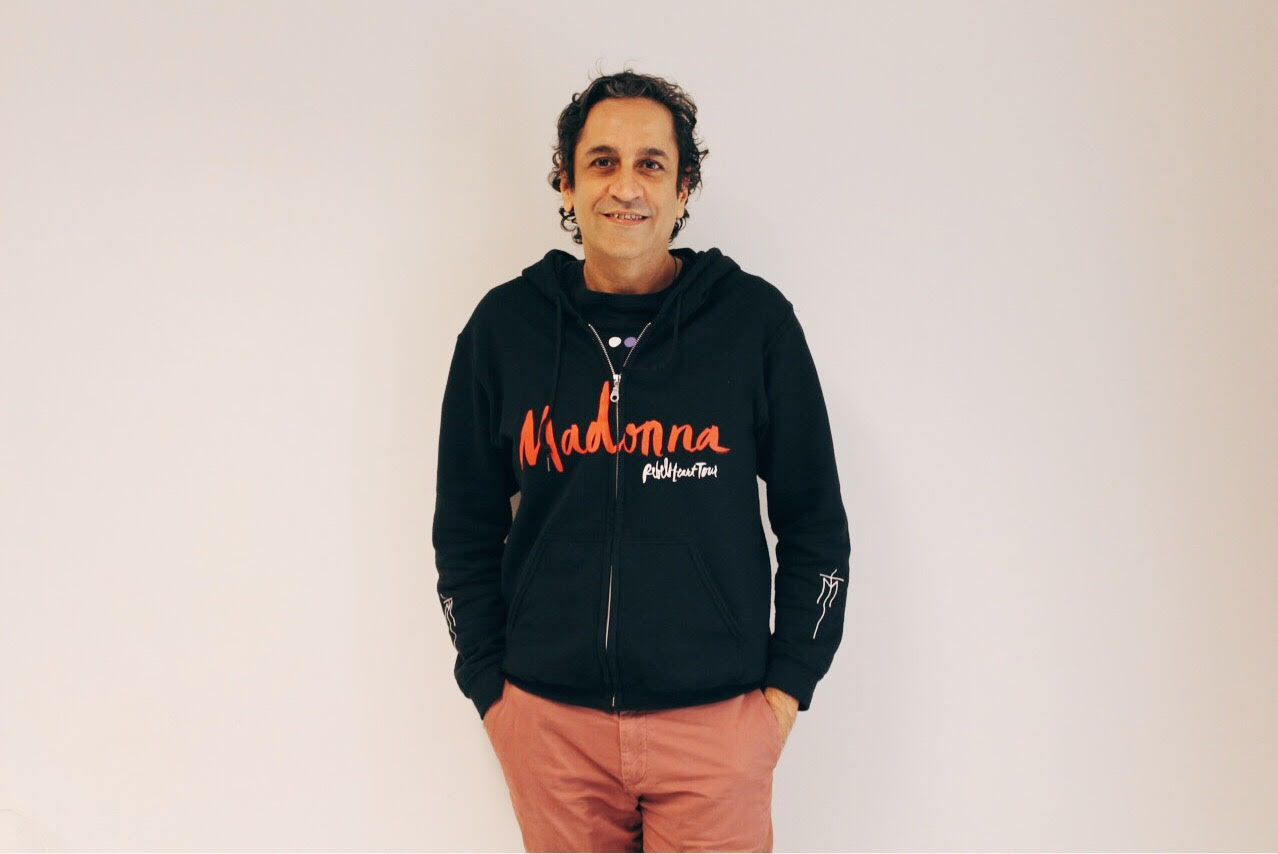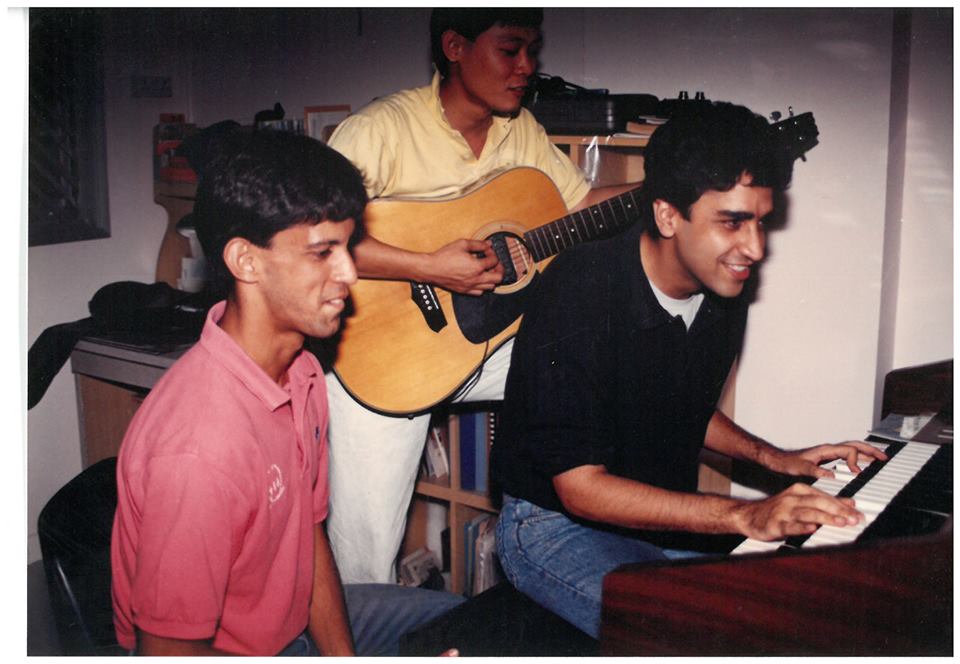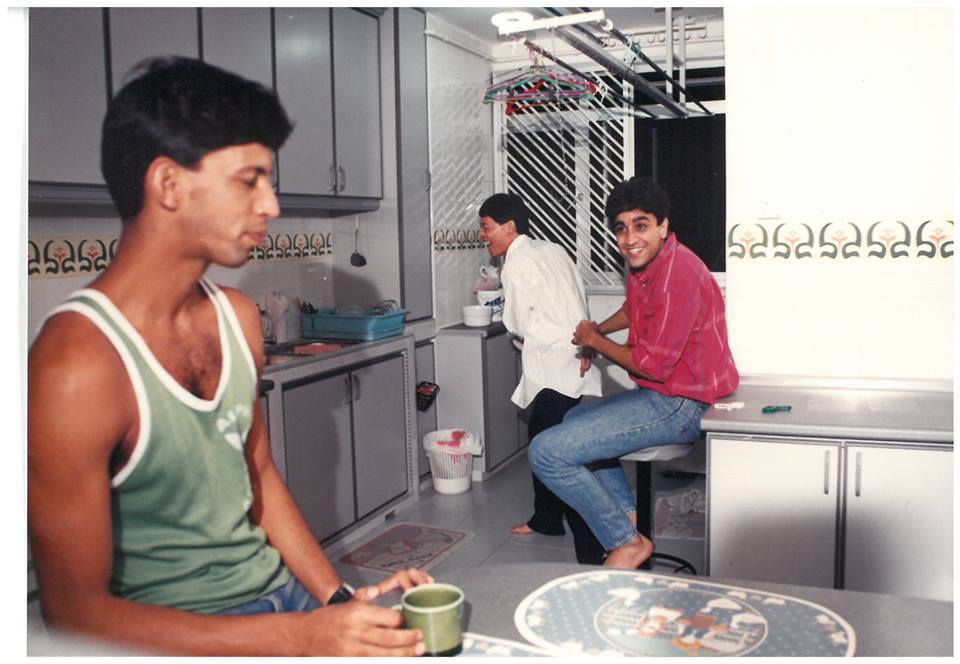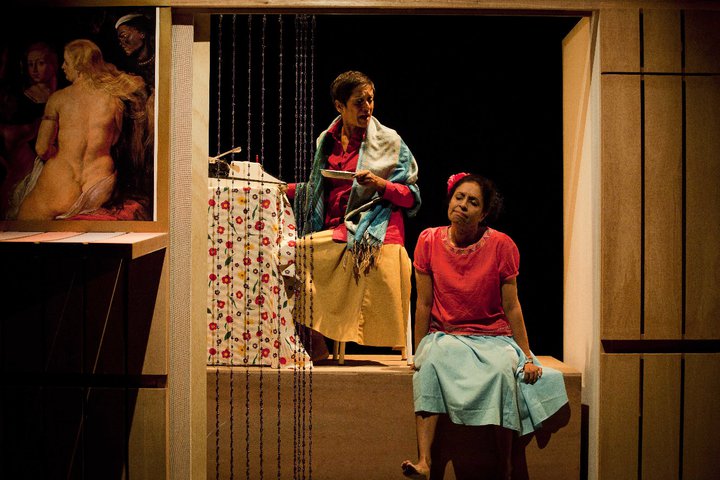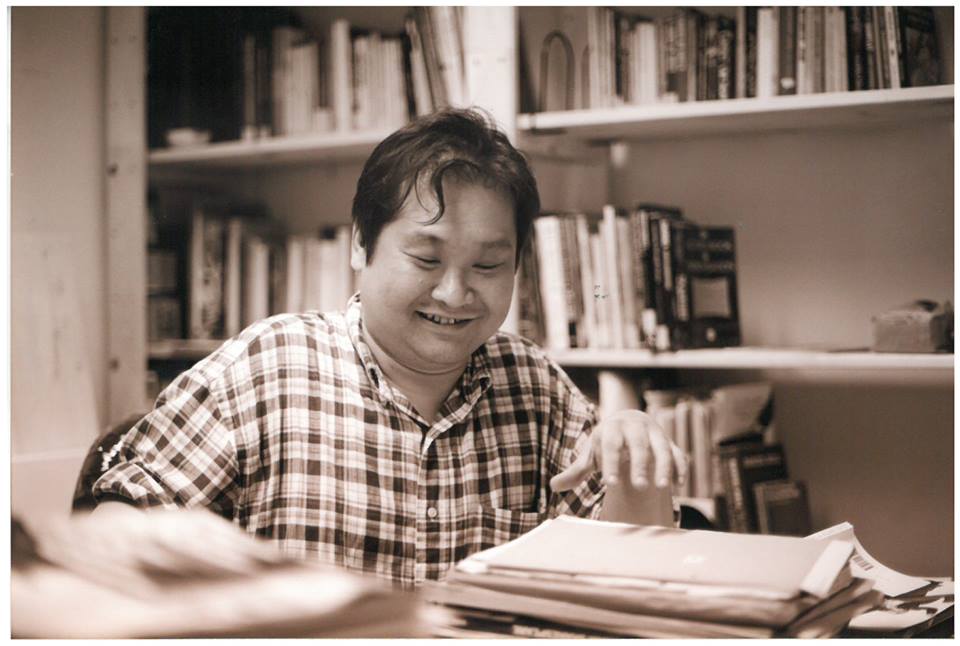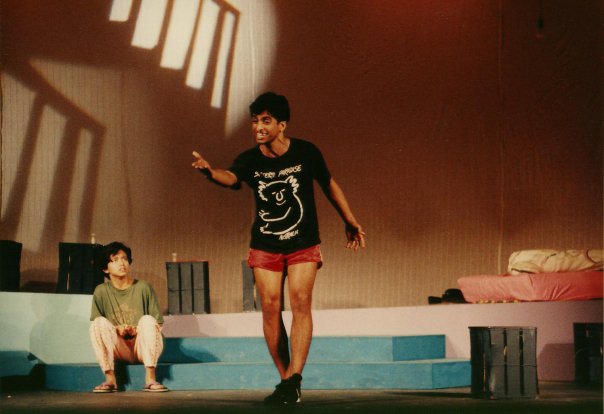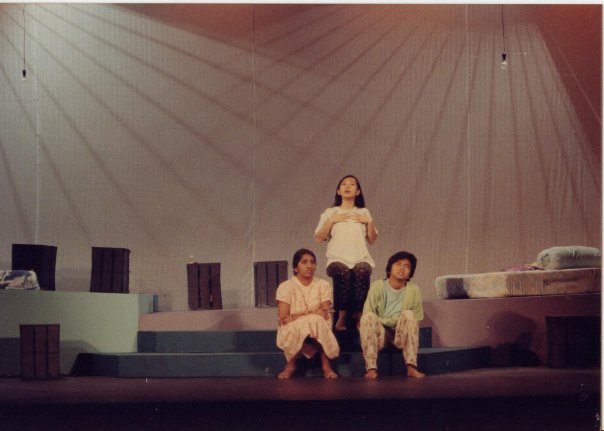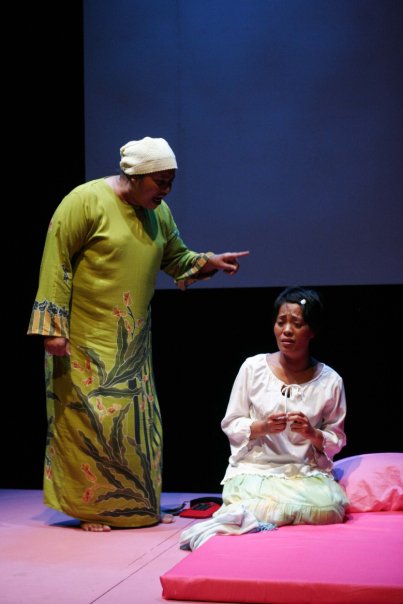For the first time earlier this year, Esplanade’s The Studios series presented a season of plays focused on a single playwright, which lasted a whole month. The man in the spotlight was the inimitable Haresh Sharma, Resident Playwright of the theatre company The Necessary Stage (TNS), and the recipient of the 2015 Cultural Medallion.
His 1993 play Off Centre was the first ever local Singapore play to be included in the GCE O and N Levels syllabus for literature.
As TNS celebrates its 30th anniversary this year, they are collaborating with Cake’s Artistic Director Natalie Hennedige for a brand new production ‘Being Haresh Sharma’. The production looks at TNS’ expansive repertoire of scripts by Sharma, spanning three decades.
Connected to India sat down for a chat with Haresh Sharma, who shared his experiences of negotiating his identity as a child of Singapore, born and bred here on this sunny island. His parents were of North Indian origin. In Singapore, the racial categories consist of Chinese, Malay, Indian, and Others (CMIO) – but due to a majority of Indians in Singapore being Tamil-speaking, as well as with Tamil being the official language representing Singaporean Indians, Sharma has always been in the awkward position of being Indian but strangely off the statistics of the local population. Looking back at the past 30 years, he also talked about his TNS journey, the highs and lows, and the new production that will be staged at the end of June 2017.
CtoI: One of the things that is unique to the Singapore landscape is that the Indian diaspora here knows very little about the Non-Resident Indians (NRIs) and vice versa. So we would like to introduce you to the NRIs as well, those who have relocated from other places to Singapore. Could you tell us about your family background and roots to India?
Haresh Sharma: My father came from India to Singapore in the 1950s, and since he was young, he knew that he wanted to leave home and work overseas. His father – that is, my grandfather – was working in Japan, and my father always felt that there was something very exotic about that. My father would come home to visit every few months and bring back very interesting textiles and clothes; the family would be the envy of everyone else.
Therefore, when my father reached working age, he wanted to come to this part of the world. He had a contact in Singapore who was also in the textile industry, and he came to work here. Both my parents were affected by the Partition; in 1947 they became refugees and moved to Bombay from Hyderabad, Sindh. At some point in the late 1950s, after my father had settled and gotten a job here, he brought my mum to Singapore. They have been living here ever since.
There were four of us – I have three other siblings, and I was born in 1965, which was the year of Singapore’s independence. So I was really very much a child of Singapore.
We grew up in a Malay kind of household. We had a nanny who took care of us, especially me, being the youngest. We grew up speaking Malay at home, and I remember asking my mum years later, why didn’t she teach us any Indian language at all? And she said, “You are in Singapore, so just speak English and Malay.”
So I grew up in a very Hindu conservative household, where you had very strange customs, for instance, on Mondays I was a vegetarian. My friends couldn’t understand why I couldn’t eat chicken rice on one day, but I could eat it the next day. I was like, “I also don’t understand I was just following.” So at home, it was a very traditional and conservative, very Indian household – it’s almost got its own… life. But in school it was very different; it was very Singaporean, I have Malay friends and Chinese friends… I was learning about all the other things that have nothing to do with what was going on at home.
For a long time it was really trying to manage that and not to look at it as a weird thing.
Also, another thing that struck me was that a lot of what I celebrate at home becomes very private. For example, there would the public holiday called Deepavali, but at home we call it Diwali – and it always doesn’t fall on the day that the official holiday falls. It’s always the day after, for some reason. So here we have a public holiday, and the whole of Singapore is celebrating, but we are not celebrating anything because according to our calendar, it’s tomorrow. Then tomorrow when everybody is going back to school, we would have to do all kinds of rituals involving showering in oil… and I couldn’t tell anybody about it. It’s almost like a weird secret that we have; we are celebrating a very important day today but you can’t tell anyone because yesterday was the official day.
CtoI: Did you ever feel marginalised when you were growing up?
Haresh Sharma: I never did, and I think it’s because I just accepted everything as part of what it is.
But at the same time, I was very much a leader in school. I was a prefect, I did well in school, and teachers gave me responsibilities to be in charge of things. So I always felt that I was useful. I never felt marginalised in the sense that, I didn’t feel that I didn’t have access to certain opportunities because of my race.
CtoI: Were there any plays you have written that touched on racial dynamics in Singapore?
Haresh Sharma: One early play I wrote, which was recently revived by Esplanade, was This Chord and Others. It was about three friends; an Indian Sikh guy, Chinese guy and Eurasian guy. They had the kind of very strong friendship in which they can be racist to each other.
But what happened in the play was, because they were working together in the same bank, there was an opportunity for one of them to be promoted. Suddenly the friendship becomes rivalry, and suddenly the racist jabs became not-so-funny anymore, because they started to take it personally.
The play was called This Chord and Others, because they also wanted to take part in their company talent time. I wanted to use music as a way of showing that harmony can exist even when there are differences. It’s like how the different notes in music can harmonise, you know.
CtoI: Have you seen Pooja Nansi’s play I’m here?
Haresh Sharma: I know Pooja very well; she’s a good friend of mine. I saw a very early version, which she did at the raw series.
Her experience was very different because she grew up in India for a few years and then she came here. So she speaks Hindi and she already kind of had that Indian upbringing and so it was more like… trying to be Singaporean. Whereas for me, it’s like I grew up a Singaporean and I’m trying to be Indian.
CtoI: So this year, TNS is celebrating 30th anniversary. You have created so many interesting characters over the past 30 years. How has the journey been?
Haresh Sharma: We just took it one at a time because we don’t know what is going to happen next. Alvin and I never sat down and talked about what’s going to happen in 30 years’ time. Never. We just kept going. Sometimes, a very good thing comes along, and we get a commission or arts festival or something. And perhaps then a bad reviews comes.
We just took it all – highs and lows – and just being as sincere as we could, and have any airs about it. We are just doing everything for the love of creating art.
So it wasn’t something we planned. We never had any milestone. I think it is a milestone as long as we continue. I don’t know when or how it is going to end, because you can never predict these things. But as long as we can, we will continue with it.
CtoI: Do you think that you are getting better every year? After all, you won an award in your debut. So 30 years later, do you feel that you were getting better at this?
Haresh Sharma: Some things get easier. There are certain things you can fast track in terms of writing a scene, but certain things you can’t – like research.
CtoI: What is your biggest challenge in writing? Have your challenges evolved over the years?
Haresh Sharma: The biggest challenge is not in the writing actually. I am very lucky, not just in Singapore, but in the world, because it is very very rare, to have someone who is a fulltime playwright. I also have a theatre company, and this means that I am able to write whatever I want to write.
So it was a very fortunate position to be in, and to still be in.
CtoI: Please tell us a bit about the collaboration between TNS and Cake's Artistic Director Natalie Hennedige for the production Being Haresh Sharma. Is there anything in this process that has given you new perspectives on any of these plays or characters?
Haresh Sharma: Natalie is a close friend of mine, as well as of TNS, because she used to work here. When she started in theatre, she also acted in TNS.
A few years ago, we saw a production that she did with the NUS theatre studies. She took some of my scripts, chose certain scenes and remixed them into a work. I went to watch it and was really blown away by it, because they are my plays but she just took moments and characters and she put them together. The students did a good job as well.
So when we were planning our 30th anniversary, the first thing I said was that we should commission Natalie to do that, you know, give her all the scripts that she wants, get whoever actors she wants to work with and enjoys working with. So that was what we did. I don’t get involved in the production because I just want to be surprised when I walk for the show.
We have gotten some of the very top actors from Singapore and Malaysia on board; like Jean Ng, Julius Foo and Karen Tan, Siti Khalijah Zainal, Jo Kukathas and Ghafir Akbar.
CtoI: Your play Off Centre was the first play to enter the O Levels literature syllabus in 2006. How did ‘Off Centre come about and how did it end up in the syllabus?
Haresh Sharma: In 1993, we were commissioned by MOH to create a play on the issue of mental health, and of course we said yes. So we had access to the then Woodbridge Hospital. Alvin, the actors and I interviewed patients, ex-patients, psychiatrist, social workers, family members.
It was a very exciting time. We would go and interview these people, come back to the rehearsal room and improvise, playing out the different characters we interviewed. From there I wrote a draft.
But the problem started after that. The ministry didn’t like it because I portrayed mental illness in a very real and gritty way. There were two protagonists; they became friends, and eventually one survived but the other did not. The Ministry was very unhappy about the fact that there was a suicide in the play.
Later on, we realised that what they wanted was a very sugar-coated sort of play, in which someone who is not well goes to see a psychiatrist, talks to a social worker and then gets better. But that wasn’t the reality that my research had shown me. My research showed me that the struggle was very real, and rehabilitation was very difficult. So I wanted to be fair to the research.
The Ministry said my plot wasn’t educational. But for me, education is when you talk about it, you know, and that was what the play does. It provokes you to talk about these issues. It makes you talk about why is this happening, why must that character die, what could we have done to make things better, you know?
But in any case, we went on with it and it was very well received. We re-staged it the following year. Every now and then we would get some request regarding this play. But the most bizarre request was in 2006, when the Ministry of Education came here and said they have selected this play to be the first Singapore play to be in the O and N level syllabus.
I asked them, “Did you know that this has suicide and strong language?” They said it was fine. The not-so-good thing about this was that there was no guidebook. It was totally brand new, and it was very unsure whether it would be successful. We didn’t know if teachers would be willing to the risk, since there were no resources.
The good thing about having this play in the syllabus was that the language was accessible to the students. For some others works, like Shakespeare for example, the language is such a barrier and then it is more difficult to start forming opinions or start writing essays about characters and themes and so on.
So that was very unbelievable, because one period in your life this play was being slammed, and then in another period this was being celebrated.
CtoI: If you were to write Off Centre now, in 2017, do you think the MOH would still not like it?
Haresh Sharma: I think if it were as a commissioned work they would still not like it. There is still the mindset that a play that is endorsed needs to be more positive.
Whereas my approach is not about whether the play ends in happily ever after. It is about how the audience responds to the play.
Details of the show:
Being Haresh Sharma will run from June 29 to July 2, 2017 at the Drama Centre Theatre, Level 3, National Library. Tickets are available via SISTIC.

